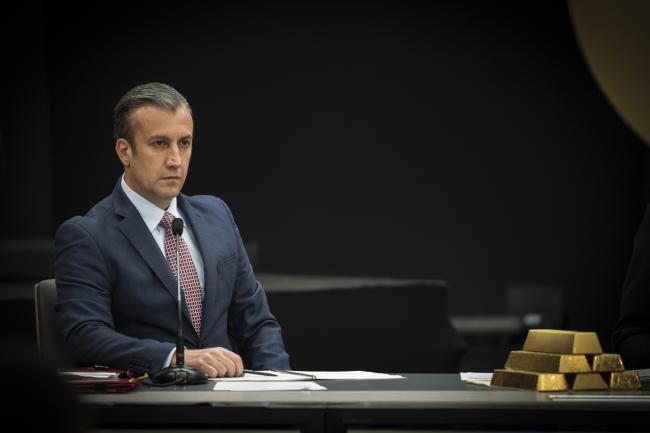(Bloomberg) -- The government of Venezuela’s Nicolas Maduro told a group of executives representing about 50 consumer companies to open bank accounts in Russia, Turkey, China and India and to begin building relationships with suppliers in those countries, according to two people with direct knowledge of the meeting.
The Finance Ministry will host workshops so that executives learn how to open the foreign accounts, one person said. The companies were also warned that attempts to disrupt production to destabilize Maduro’s regime would trigger reprisal from the state.
In the meeting called by Vice President of Economy Tareck El Aissami and Interior Commerce Minister William Contreras at the presidential palace in Caracas on Monday, the executives were told not to raise prices since inflation has allegedly begun to decelerate, the two people said, asking not to be named speaking about a private meeting. A model of price increases tied to the country’s official exchange rate is being studied, the government officials said.
Press departments at the government ministries didn’t immediately reply to requests for comment on the meeting.
Maduro’s government is scrambling to try to work around U.S. sanctions and asset freezes that are crippling state finances and curtailing Venezuela’s ability to operate in the global financial system. Restricted access to raw materials, price controls and a lack of dollars to import goods have already prompted multinational companies to leave the troubled nation, such as Kellogg Co. and Kimberly-Clark Corp (NYSE:KMB).
The sudden emergence of Juan Guaido, the opposition head of the National Assembly, and the global support he’s received recognizing him as the legitimate leader of Venezuela, has given business leaders and investors renewed optimism that an end to the two-decade socialist regime could be near. Still, Maduro continues to control nearly all levers of the state at home.
Maduro continues to enjoy international support from China, Russia and Turkey while India has become a key buyer of its crude oil that was previously shipped to the U.S.
In October, private banks were encouraged by the monetary authority to open accounts with Moscow-based Evrofinance Mosnarbank in order to clear international transactions. The bank is half owned by the Venezuelan state with the remainder in the hands of Russia’s VTB Group and Gazprombank.
While the pace of price increases in the last few weeks has slowed, the annual inflation rate now stands at 359,900 percent, according to Bloomberg’s Cafe Con Leche Index. Venezuela’s five-year recession has wiped out consumer demand and purchasing power to the point where a monthly minimum wage is barely enough to buy one McDonald’s (NYSE:MCD) meal or three liters of Pepsi.
 =
=